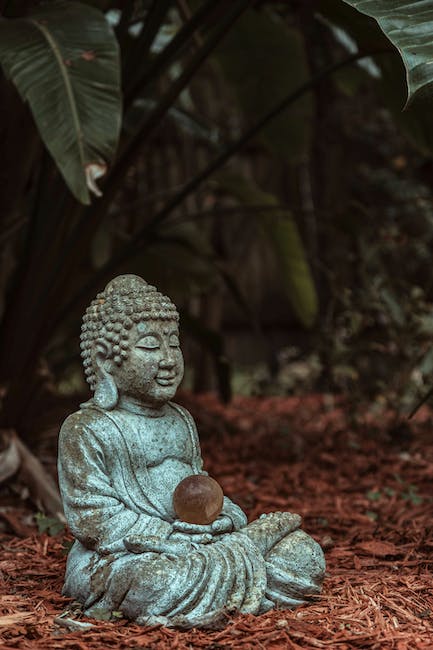In a world where stress and anxiety seem to be the norm, more and more people are turning to meditation as a way to find peace and clarity. One form of meditation that has gained popularity in recent years is Vipassana, which originated in ancient India and has been practiced for over 2,500 years. But what exactly is Vipassana meditation, and how did it come to be? To uncover the roots of this ancient practice, we must delve into the history and philosophy of Buddhism, the religion from which Vipassana emerged. Join us on a journey through time and space, as we explore the origins and evolution of Vipassana meditation.
1. The Ancient Origins of Vipassana Meditation: Tracing its Roots
Vipassana meditation is an ancient practice that has been passed down through generations of Buddhist monks. The origins of Vipassana can be traced back to the teachings of the Buddha himself, who discovered the practice through his own personal journey towards enlightenment. The word “Vipassana” comes from the Pali language and means “insight” or “clear seeing”.
The practice of Vipassana meditation was originally developed as a way to gain insight into the nature of reality and to overcome suffering. It was believed that by observing the sensations in the body and the mind, one could gain a deeper understanding of the impermanent and ever-changing nature of existence. Over time, the practice of Vipassana spread throughout Asia and became an integral part of Buddhist teachings. Today, Vipassana meditation is practiced all over the world and is known for its ability to help individuals develop greater self-awareness, inner peace, and compassion.
2. From the Buddha to the Modern World: The Evolution of Vipassana Meditation
Vipassana meditation, also known as insight meditation, has a rich history that dates back to the time of the Buddha. The practice involves observing one’s thoughts, emotions, and physical sensations in a non-judgmental way to gain insight into the nature of reality. Over time, the practice has evolved and spread throughout the world, with many different teachers and schools of thought contributing to its development.
One of the most significant figures in the evolution of Vipassana meditation was Mahasi Sayadaw, a Burmese monk who popularized the practice in the 20th century. His teachings emphasized the importance of mindfulness and the cultivation of wisdom through direct experience. Today, Vipassana meditation is practiced by people of all backgrounds and beliefs, and has been shown to have numerous benefits for mental and physical health. Whether you are looking to reduce stress, improve focus, or deepen your spiritual practice, Vipassana meditation is a powerful tool that can help you achieve your goals.
3. Unearthing the Secrets of Vipassana Meditation: A Journey Through Time and Culture
Vipassana meditation is an ancient technique that has been practiced for over 2,500 years. It originated in India and was taught by the Buddha himself. The word “Vipassana” means “insight” or “clear seeing,” and the practice is designed to help individuals gain a deeper understanding of themselves and the world around them.
Over the centuries, Vipassana meditation has spread across the globe and has been adapted to different cultures and traditions. Today, it is practiced by millions of people worldwide, and its benefits are widely recognized. Some of the benefits of Vipassana meditation include increased self-awareness, improved concentration, reduced stress and anxiety, and a greater sense of inner peace. If you are interested in learning more about Vipassana meditation, there are many resources available online and in-person. As we conclude our journey through the history of Vipassana meditation, we can’t help but marvel at the depth and richness of this ancient practice. From its origins in India to its spread across the world, Vipassana has stood the test of time and continues to offer a path towards inner peace and enlightenment.
Through the centuries, countless individuals have found solace and transformation through the practice of Vipassana meditation. And as we delve deeper into its roots, we gain a greater appreciation for the wisdom and insights that have been passed down from generation to generation.
Whether you are a seasoned practitioner or a curious newcomer, the history of Vipassana meditation offers a wealth of knowledge and inspiration. So let us continue to explore this timeless practice and discover the profound truths that lie at its heart.
